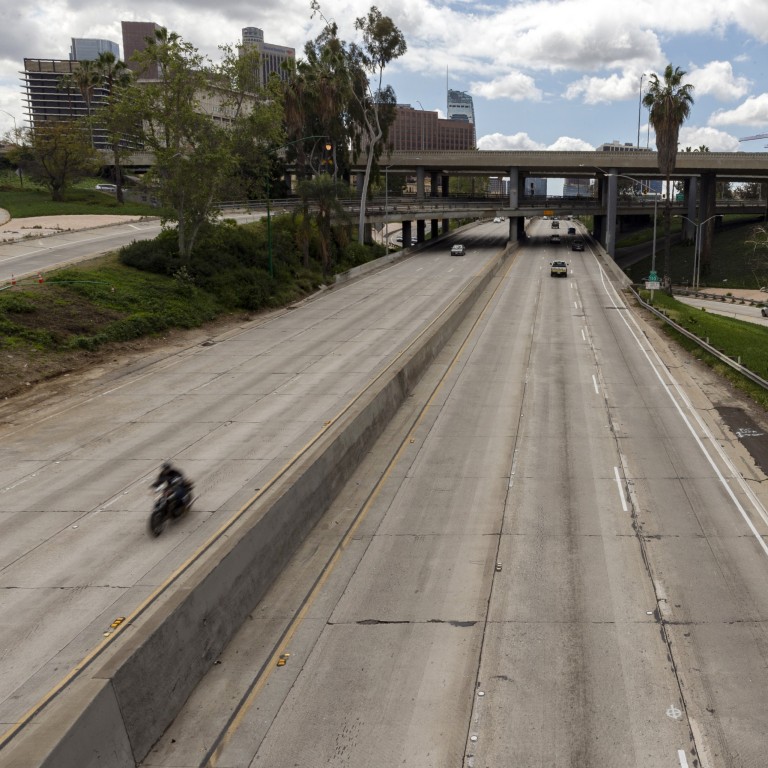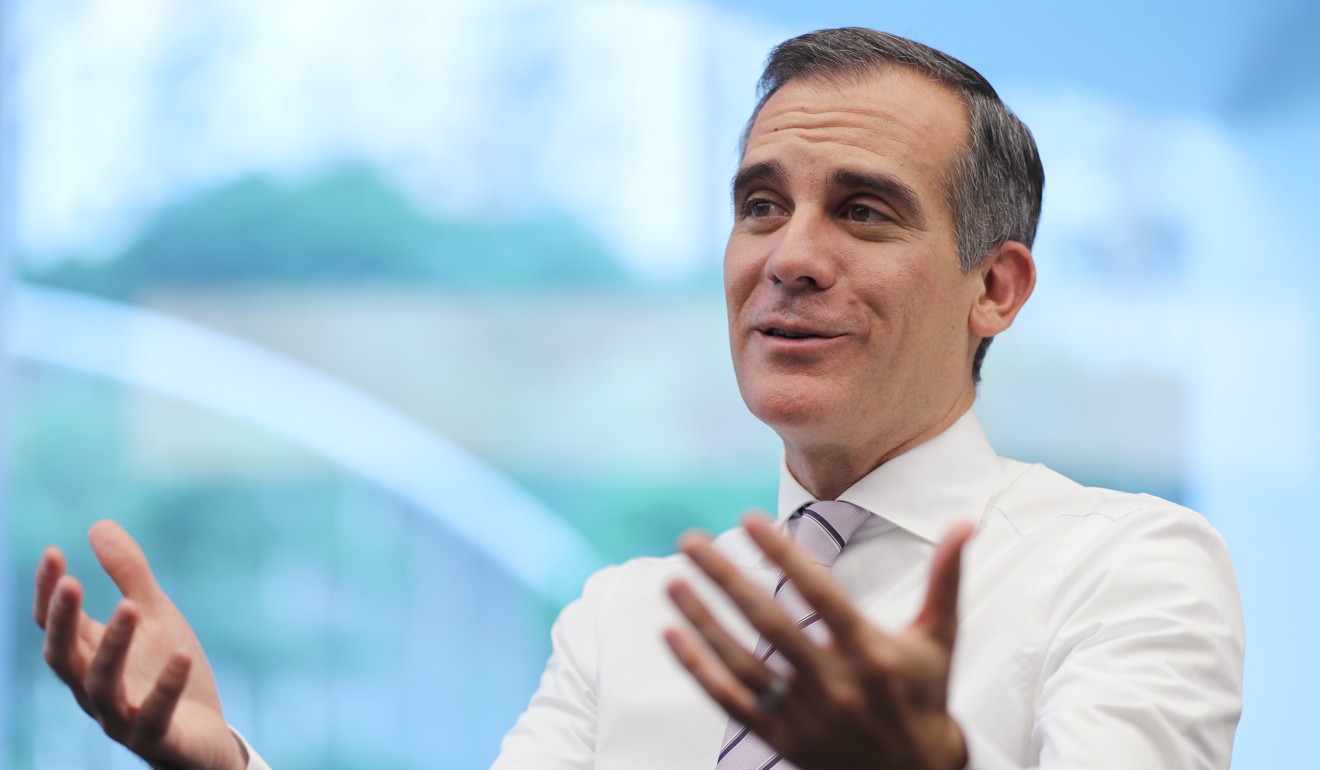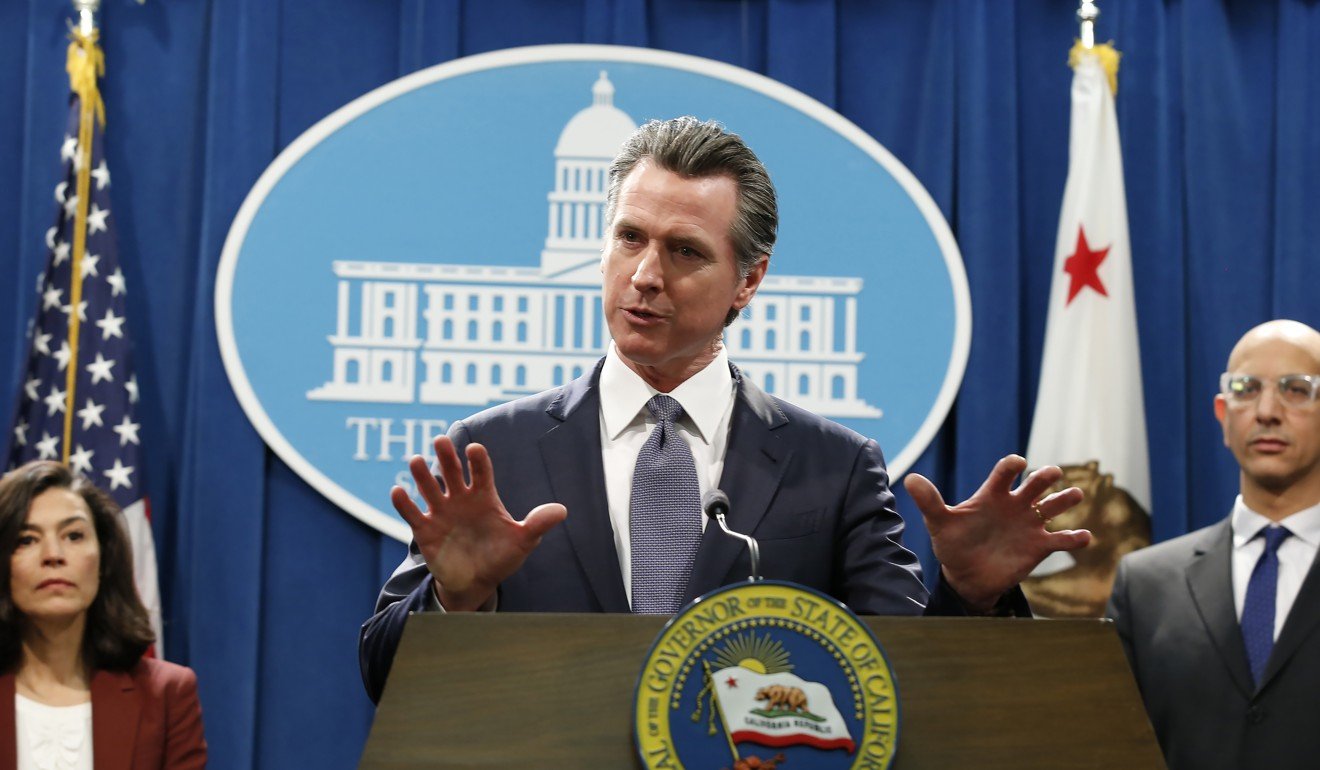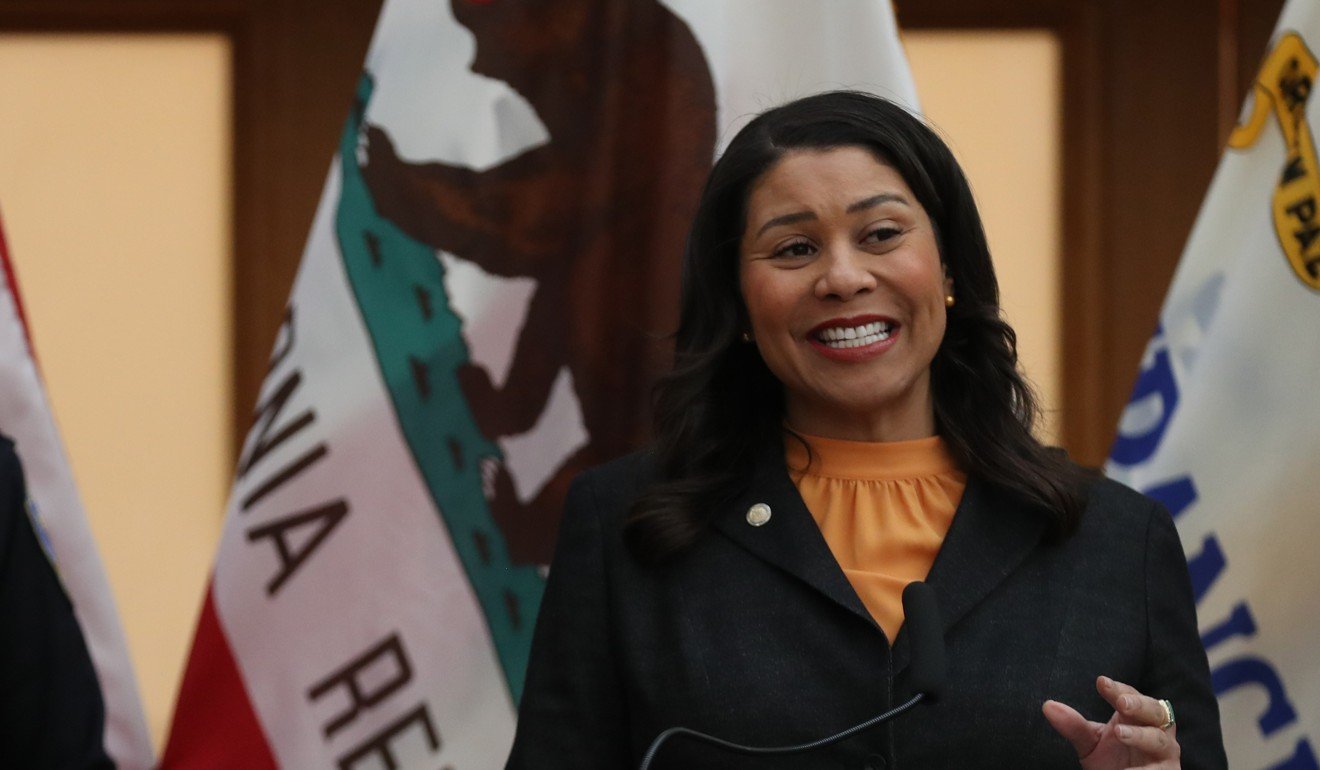
Coronavirus: Trump wants restrictions eased by Easter, but California begs to differ
- Officials in the most populous US state, already designated a disaster area, say the outbreak has not yet reached the height of its impact there
- Governor Gavin Newsom says a return to normal is more than a month away, while San Francisco Mayor London Breed asks ‘Why are we still listening to the president?’
Even as US President Donald Trump pressed this week for an end to strict public health measures taken to curb the coronavirus spread, California officials pushed back, saying that the state was nowhere near reaching the apex of the outbreak’s impact, let alone in a position to loosen restrictions.
Los Angeles Mayor Eric Garcetti warned that his city – the nation’s second-largest, behind New York – would be in the same situation as New York, considered an outbreak epicentre, in as little as six days.
“It’s coming,” Garcetti said on Tuesday evening. “The peak is not here yet. The peak will be bad. People will lose their lives.”
The mayor’s warnings were typical across a state that has already been designated a national disaster area, facing unprecedented economic fallout and bracing for the worst.
Film and television production has all but shut down in Hollywood. Coachella, the pre-eminent annual music and arts festival in the US, postponed its start from April to October; Silicon Valley, the tech mecca which emerged as one of the country’s viral hotspots, was part of the Northern California region subject to the country’s first “shelter in place” orders on March 16; Governor Gavin Newsom extended those orders statewide three days later.
The state’s economy is the largest in the US – if California were a country, it would have the fifth largest economy in the world, larger than those of India and Britain – and went into 2020 with a historic budget surplus and reserve fund of more than US$21 billion.
Now, economists fear that the entire surplus could be spent in a matter of months to maintain basic government functions.
Garcetti’s comments were in stark contrast to those by Trump, who said on Tuesday he would like to see an end to the country’s strict social distancing measures by Easter Sunday – less than three weeks away – a position sharply at odds with health experts who say that such a quick loosening of restrictions could potentially kill millions of Americans.

In his statement, Garcetti warned Los Angeles residents that they should expect to stay at home for months, not weeks.
“All of us want things to go back to normal, all of us,” he said. “But the premature pronouncements that we can see that light at the end of the tunnel – I would say we are just entering that tunnel right now.”
He cautioned Los Angelinos to prepare for the worst, and said that his city would soon – in six to 12 days – resemble New York City where, he said, “where more than one American is dying each hour”.
Trump wants US ‘opened up’ by Easter, ignoring experts’ warnings
Garcetti joined a chorus of lawmakers across the state who are increasingly at odds with the president’s optimism.
On Tuesday, Newsom addressed Trump’s remarks, saying that a return to normal by Easter Sunday “would be sooner than any of the experts that I talk to believe is possible”.

Speaking at a Facebook Live event, Newsom told Californians that the state’s lockdown would continue for at least six more weeks. As of Wednesday morning, California had 2,662 confirmed coronavirus cases, with 58 deaths.
Newsom has been careful not to seem directly confrontational with the president; for one thing, the state is a Democratic stronghold and its representatives in Washington, including House Speaker Nancy Pelosi, are reliable Trump critics.
But elsewhere in the state, officials have not been so cautious.
In a televised interview on Tuesday morning, even before Trump made his prediction about Easter Sunday, Libby Schaaf, mayor of Oakland, in Northern California, did not hold back, calling the president a “disaster” and “his own state of emergency.”
“The president has exhibited such poor leadership throughout this crisis, going from Obama-blaming to denial to now downplaying the seriousness of this crisis,” Schaaf said. “It is so reprehensible that he is not giving American people the truth.”

Across the bay, San Francisco Mayor London Breed also vented frustration. On the heels of Trump’s Easter announcement, Breed appeared on local television asking: “Why are we still listening to the president?”
She decried a lack of federal support during this crisis, and said that Californians were effectively being left to fight the virus on their own.
“The fact is, we here in our city, throughout states in the United States of America, we have demonstrated, sadly, that we had to jump into action and make this work without federal government support,” Breed said.
Speaking at a virtual press conference on Wednesday afternoon, Breed went further: “Things are going to get worse and it’s important that we continue to stay at home because we truly do save lives as a result.”
“It requires the need for our state and federal partners to step up more than they ever have before and to move faster ... We will need more, it’s not even a question.”
Breed and Schaaf’s comments came as the situation in Northern California became increasingly dire. In Silicon Valley, the virus has been especially fast-spreading and lethal, leaving the hi-tech and financial powerhouse reeling as it emerges as an epicentre for the outbreak.
The valley’s Santa Clara County was home to the second coronavirus case in California and the seventh in the country. Now the county has reported 375 confirmed cases of the virus, with 100 people hospitalised and 16 coronavirus-related deaths.
On Tuesday, Stanford University, the Valley’s cultural and intellectual hub, reported that 24 students, faculty members, or staff had tested positive for the virus. The university, like all others in the state, has closed in-class instruction and moved to online classes.
Even for a state where a healthy distance from Trump is often politically prudent, public responses to the president's comments from California Republicans have been notably muted. Several Republican state lawmakers did not immediately respond to requests for comment.
Back in Los Angeles, Garcetti has also been harshly critical of businesses that are scoffing at following restrictions.
In a public update to Los Angeles’ “Safer at Home” restrictions, the mayor outlined new protocols intended to keep non-essential businesses in line, including in extreme cases shutting off water and power to those that violate government directives.
“We’re still getting reports each day of non-essential businesses continuing to operate as normal,” he said on Tuesday. “This behaviour is irresponsible and selfish.”
During the Wednesday teleconference with Mayor Breed, San Francisco Director of Health Dr Grant Colfax seemed to sum up the public posture of most of California’s leading officials.
“Social distancing can and will save lives,” he said. “I know there are people out there who would lead you to believe that our efforts are too aggressive. But I cannot stress enough just how vital they are.”
Purchase the China AI Report 2020 brought to you by SCMP Research and enjoy a 20% discount (original price US$400). This 60-page all new intelligence report gives you first-hand insights and analysis into the latest industry developments and intelligence about China AI. Get exclusive access to our webinars for continuous learning, and interact with China AI executives in live Q&A. Offer valid until 31 March 2020.

